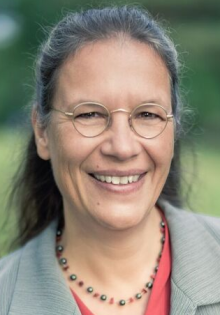Satisfied faces among the master's students of engineering didactics after successfully testing their workshops on the topic of sustainability. At the beginning of the semester, the group was given the task of developing three workshops in which young people can experience how engineering science makes significant contributions to important social issues of the future, such as resource conservation.
In the workshop on plastic recycling, beverage bottle caps were crushed and melted down, measuring electrical energy and temperature and creating new key chains. In the workshop on aerodynamics, homemade shapes, animal figures and vehicles were tested for their "wind resistance" in a miniature wind tunnel. In the repair workshop, defective device parts such as the battery cover of a remote control were measured, sketched, constructed and reprinted using the 3D printer.
The workshop development was part of a technology didactics seminar within the master's degree program in teaching at vocational colleges for the vocational subjects of electrical engineering and mechanical engineering technology. The students were asked to put into practice the skills and abilities they had acquired in their bachelor's studies and to reflect on them in a literature-based manner. They received professional input from a visit to the Hanover Fair and from interviews with experts in the engineering sciences at Paderborn University.
In the future, the new modules will be available for groups of students in the coolMINT.paderborn student lab. In addition, they will be included in the so-called MINTmachPOOL as part of the BMBF-funded project MINT 4.OWL and made available as mobile offers OWL-wide. Prof. Dr.-Ing. Katrin Temmen, Head of the Department of Technology Didactics, who developed this seminar concept for the master's students and implemented it with them, is pleased: "With these new workshops, the topic of sustainability becomes tangible for the young people in the truest sense of the word. At the same time, they learn how the engineering sciences at Paderborn University make an important contribution to the social issues of the future."




